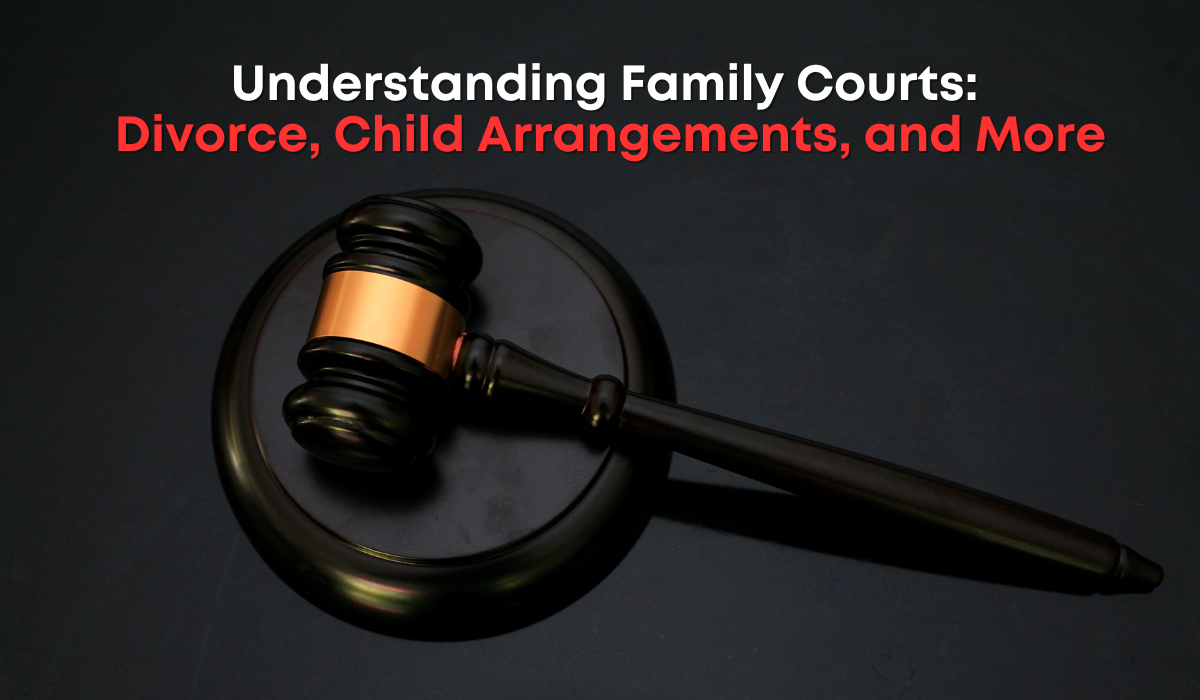Family law matters, whether concerning divorce, child custody, or financial settlements, can be deeply personal and emotionally charged. For individuals navigating such challenges in England and Wales, understanding the role of the Family Court and exploring alternative dispute resolution (ADR) methods is crucial. This article provides a comprehensive look at the courts involved in family cases, the types of matters they handle, and the increasingly popular ADR options available.
The Structure of Family Courts in England and Wales
In 2014, the Family Court was established to streamline family law proceedings, replacing the previous fragmented system involving County and High Courts. The Family Court operates at different levels, depending on the complexity of the case:
Magistrates’ Court
Magistrates, trained in family law, handle straightforward matters such as:
- Child arrangements (custody and visitation).
- Domestic violence protection orders.
- Child protection cases.
District Judge
District Judges, legal professionals specializing in family law, oversee more complex cases, including:
- Child arrangements orders.
- Financial settlements in divorce proceedings.
- Contested adoption cases.
Circuit Judge
For high-stakes or particularly contentious matters, such as:
- International child abduction.
- High-value financial disputes following divorce. Circuit Judges provide their advanced expertise and authority.
High Court
The High Court intervenes in cases involving:
- Significant sums of money or complex legal issues.
- International elements, such as cross-border custody disputes or child abduction. It also hears appeals from lower courts and urgent applications for injunctions.
What Types of Cases Do Family Courts Handle?
The Family Court’s jurisdiction is broad, encompassing various family-related legal issues:
- Divorce and Dissolution of Civil Partnerships: Resolving disputes over property, maintenance, and financial settlements.
- Child Arrangements: Deciding where children will live and how much time they will spend with each parent.
- Domestic Violence Protection: Issuing non-molestation and occupation orders to safeguard victims.
- Adoption and Fostering: Legalizing the adoption process and overseeing fostering arrangements.
- Child Protection: Intervening in cases where children are at risk of harm, often involving local authorities.
- Financial Settlements: Determining the division of assets, property, pensions, and spousal maintenance.
When Are Family Cases Referred to Other Courts?
While the Family Court handles most matters, certain cases may escalate:
- High Court: For cases with international dimensions, large financial stakes, or legal complexities.
- Court of Appeal: If a decision is disputed on grounds of legal error or misinterpretation, appeals can be made here.
- County Court: Handles financial disputes related to divorce or separation, including property settlements.
The Growing Role of Alternative Dispute Resolution (ADR)
Not all family law matters need to end up in court. ADR methods, such as mediation, arbitration, and collaborative law, are gaining popularity for their efficiency and ability to preserve relationships.
Mediation
A neutral mediator facilitates discussions between parties, aiming to reach an agreement without court intervention. Mediation is particularly useful in:
- Divorce and separation.
- Child arrangements.
Arbitration
In arbitration, an independent arbitrator makes a legally binding decision on disputes, often related to financial settlements. It offers:
- Privacy.
- Faster resolution compared to litigation.
Collaborative Law
Both parties, along with their lawyers, work collaboratively to negotiate an agreement. This method is ideal for those seeking an amicable resolution, particularly in divorce or separation cases.
Court vs. ADR: Which Is Right for You?
The decision to pursue litigation or ADR depends on the case’s complexity and the parties’ willingness to cooperate. Court proceedings can be:
- Time-consuming.
- Expensive.
- Emotionally taxing.
In contrast, ADR methods are generally:
- Faster and more cost-effective.
- Private and less adversarial.
- Focused on collaboration, which is particularly beneficial when children are involved.
However, it’s essential to note that arbitration outcomes are binding, while mediation agreements require mutual consent to be enforceable.
Reflecting on Family Law Processes
Family disputes often involve delicate emotions and significant life changes. The legal system in England and Wales provides structured pathways to resolve these issues, whether through the Family Court or ADR methods. While courts ensure a fair and authoritative resolution, ADR offers an opportunity for parties to work together, fostering long-term cooperation, particularly where children are concerned.
For those navigating family law matters, understanding your options can make all the difference. Whether your case requires the authority of a court or the flexibility of ADR, the ultimate goal remains the same: achieving a resolution that safeguards the best interests of all parties involved.
Get in touch: For a comprehensive understanding of your options or queries on UK immigration matters, contact GigaLegal Solicitors at 02074067654 or click here to book a no-obligation consultation with an immigration expert.


